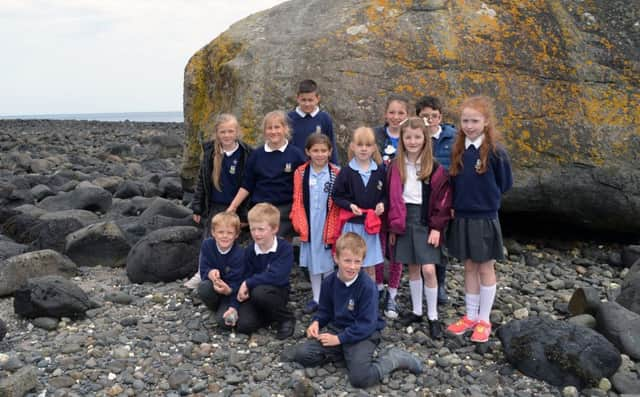Climate change concerns eased by Whitehead ecologists


Mid and East Antrim Borough Council has been active in implementing its innovative Local Biodiversity Action Plan (LBAP).
Launched last December, it sets out how biodiversity can be protected and enhanced for future generations.
Advertisement
Hide AdAdvertisement
Hide AdThe latest development, the ‘Shore Thing project in Whitehead, was delivered by Alison Diver, from MEA and Rebecca Hunter, from Ulster Wildlife.
In mid-June, they worked with pupils from Whitehead Primary School as part of their school’s Eco Club membership to survey along Blackhead Path, Whitehead.
An initiative of the Marine Life Information Network (MarLIN), Shore Thing has been giving schools and voluntary groups all over Northern Ireland the opportunity to take part in “real science” and so help to monitor rising sea temperatures.
Alison explains: “Most coastal organisms adapt to specific sea temperatures and other conditions. Therefore, it’s possible to gauge the impact of climate change very closely using the presence, absence and abundance of certain coastal species.
Advertisement
Hide AdAdvertisement
Hide Ad“The pupils began with a timed species search and found an abundance of hermit crabs, limpets, periwinkles and anemones.
“The group then completed a rock pool rummage and found more weird and wonderful creatures such as mud skippers, butterfish and rock pool prawn.
“The group did not find any species that indicated climate change - a good sign – as there is strong evidence that recent change has resulted in differences in the abundance, population structure and biogeographic ranges of a number of intertidal indicator species.”